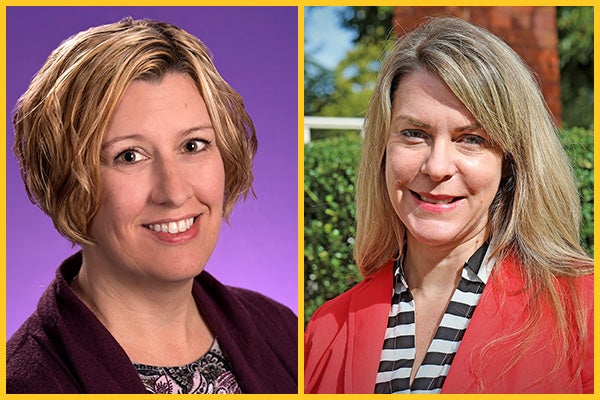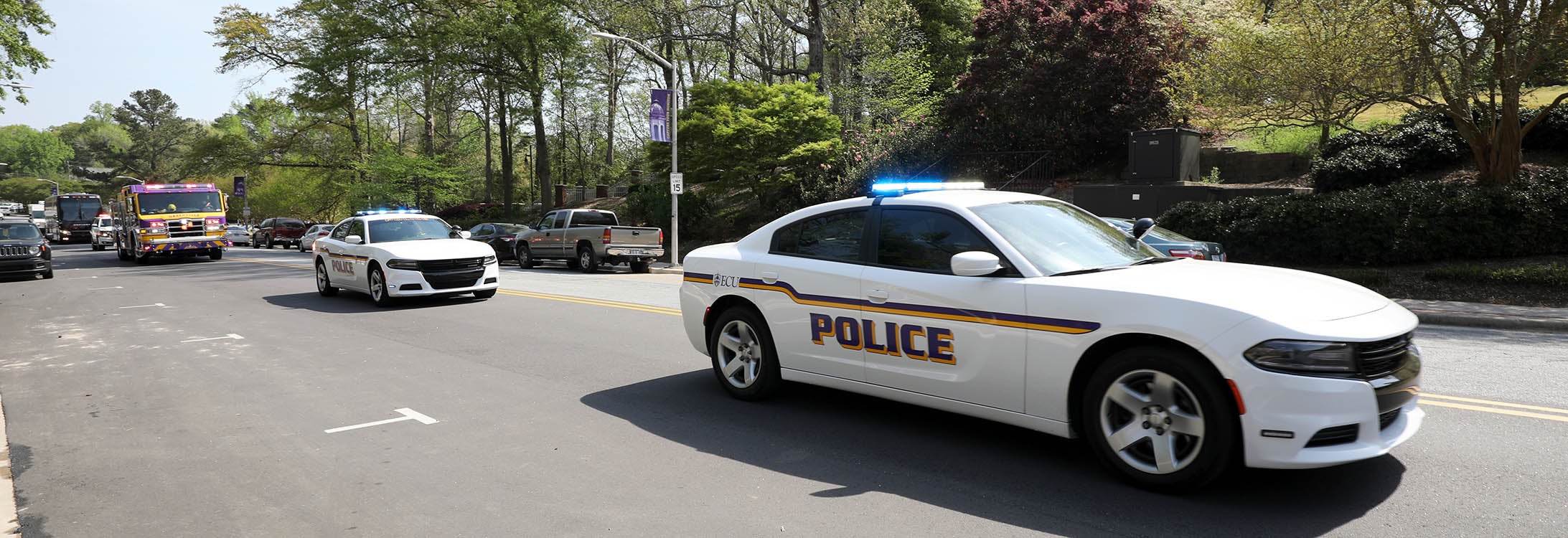SUPPORTING FIRST RESPONDERS
Research explores how law enforcement utilizes mental health resources
An interdisciplinary collaboration between two East Carolina University faculty researchers is bringing new light to the mental health of law enforcement officers.
Dr. Allison Crowe, a professor of counselor education, combined her expertise in mental health stigma with the law enforcement knowledge of Dr. Heidi Bonner, associate professor of criminal justice, to publish two articles focusing on the mental health needs and programming for police officers.
“There is a lot of research out there on how law enforcement has to come into contact with mental health with their job,” Crowe said. “However, there really was not a lot on the overall well-being of law enforcement officers themselves, so that was why we wanted to take a look at that as a topic.”

Bonner, left, and Crowe’s work was published earlier this year in the the Journal of Crime and Justice and the Administration and Policy in Mental Health and Mental Health Services Research journal.
Published in the Journal of Crime and Justice in March and the Administration and Policy in Mental Health and Mental Health Services Research journal in January, their work surveyed agencies across the United States to see what resources and programming were offered for officers.
“Law enforcement officers are first responders and oftentimes, I don’t know that their mental health is considered as much in terms of the type of work that they do,” Bonner said. “You want a law enforcement that’s mentally healthy and resilient and who knows how to handle the horrible things they see or experience.”
Throughout their research, several programming options were consistently mentioned, including employee assistance programs, stress management training and counseling — both peer support and professional assistance.
“It’s good to see a lot of agencies putting time and attention to this,” Bonner said. “Something that came out of our study was that younger officers in particular are much more open to this type of training and assistance, to seeking help and to being vocal about their concerns.”
These sentiments were echoed by local police agencies, such as the Greenville Police Department (GPD). Captain Tara Stanton is helping spearhead mental health initiatives throughout GPD and believes that a holistic approach that combines mental, financial and social health is key.
“The more information that you put out about mental health, the more acceptable it becomes,” she said.
While professional counseling is a service offered by many agencies, both the researchers and Stanton agreed that peer-to-peer mentoring can often be more effective. According to Stanton, there is a level of cultural competency that therapists and counselors will need to have to adequately understand the unique situations that law enforcement officers face.
“One of the things we heard over and over is that your counselor, therapist or psychologist really needs to understand the culture,” Crowe said. “They have to have a style that matches.”
The ECU Police Department also utilizes a program to offer employees emotional support and assistance, according to ECU Police Captain Chris Sutton.
“Law enforcement officers tend to bury their emotions under their many different layers and suppress them over their career and sometimes their life,” he said. “I believe many may suffer from some level of undiagnosed PTSD, depression and frustration.”
To help combat some of these issues, Captain Stanton of the GPD helps lead a wellness committee composed of officer and civilian volunteers that have surveyed the force and host two interactive events a month. They also maintain an internal communications blog that shares events, resources and relevant articles with officers. The police department is also in the process of launching an app that will contain resources including a national peer-to-peer mentoring network.
This aligns with Bonner and Crowe’s research, which showed that agencies are engaged and open about their desire to provide more resources to their officers. Potential next steps for their research involve a more in-depth look into current practices being implemented.
“The research we did just barely scratched the surface because it was a descriptive look at what was happening across the country,” Bonner said. “It would certainly be interesting to investigate that further but also investigate if agencies have certain types of programs, how effective are they? What do their officers think about them?”
